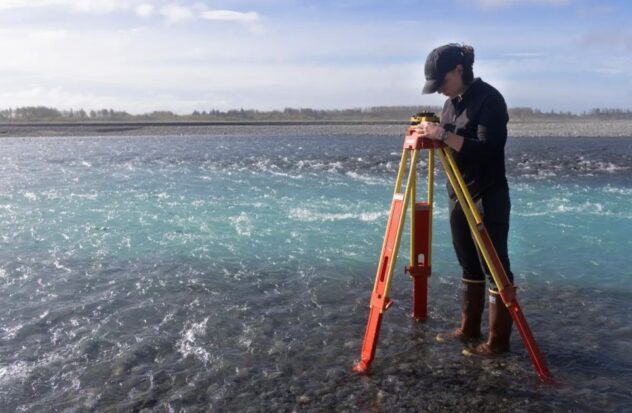MIAMI.- Freshwater data from the US-French Surface Water and Ocean Survey (SWOT) satellite is providing important information to predict when flooding may occur after monitoring the water cycle, reported the National Aeronautics and Space Administration (NASA)
Rivers, lakes and reservoirs are like the arteries of our planet. That is, they transport life-sustaining water in interconnected networks. But when Earth’s water cycle runs too fast, flooding can occur that threatens lives and property, a risk that increases as climate change alters precipitation patterns and more people live in flood-prone areas around the world. , NASA reported.
International SWOT mission improves flood prediction. It is a collaborative observatory between NASA and the French space agency, National Center for Space Studies (CNES, by its French acronym).
It quantifies the height of nearly every water surface on Earth and is designed to measure all major rivers wider than about 300 feet (100 meters), and preliminary results suggest it could look at smaller rivers. This will help scientists measure how much water lakes and reservoirs can store.
Reservoirs in the US
NASA noted that while there are about 90,000 relatively large reservoirs in the United States, only a few thousand of them have water level data incorporated into the National Water Model. This limits scientists’ ability to know how reservoir levels relate to surrounding land elevations and potential flooding.
But now the SWOT satellite is measuring tens of thousands of US reservoirs and almost all natural lakes.
Some countries, including the United States, have made significant investments in detailed local flood modeling and networks. But in Africa, southern Asia, parts of South America and the Arctic, there is little data on lakes and rivers.
In such places, flood risk assessments are often based on rough estimates. Part of the potential of SWOT is that it will allow hydrologists to fill these gaps, providing information about where water is stored in landscapes and how much flows through rivers, NASA added.
Many types of data
Scientists and water managers use many types of data to predict floods. But this year they have this new tool at their disposal.
Stream gauges can accurately measure levels in rivers, but only at individual, often widely spaced, locations. Many rivers do not have any flow meters, particularly in countries without the resources to maintain and monitor them. Gauges can also be rendered useless by flooding and are unreliable when water overflows the riverbank and flows into areas they cannot measure.
But SWOT provides a more complete 3D view of flooding, measuring its height, width and slope. Scientists can use this data to better track how flood waters pulse across a landscape, improving predictions of where floods will occur and how often.
Research is underway to incorporate SWOT data into the National Oceanic and Atmospheric Administration’s National Water Model, which predicts flood potential and timing along U.S. rivers.
Freshwater SWOT data will fill spatial gaps between gauges and help scientists determine the water levels (heights) at which flooding occurs at specific locations along rivers.
The contributions from the flood satellite will have other practical applications. For example, insurers will be able to use SWOT-based models to improve flood hazard maps and better estimate an area’s potential risks of damage and loss.
More about the mission
SWOT was jointly developed by NASA and France’s CNES with contributions from the Canadian Space Agency (CSA) and the United Kingdom Space Agency. NASA’s Jet Propulsion Laboratory, managed for the agency by Caltech in Pasadena, California, is leading the U.S. component of the project. NASA provided the launch vehicle and the agency’s Launch Services Program, based at Kennedy Space Center, and managed associated launch services.
Source: NASA / DIARIO LAS AMÉRICAS EDITORIAL

